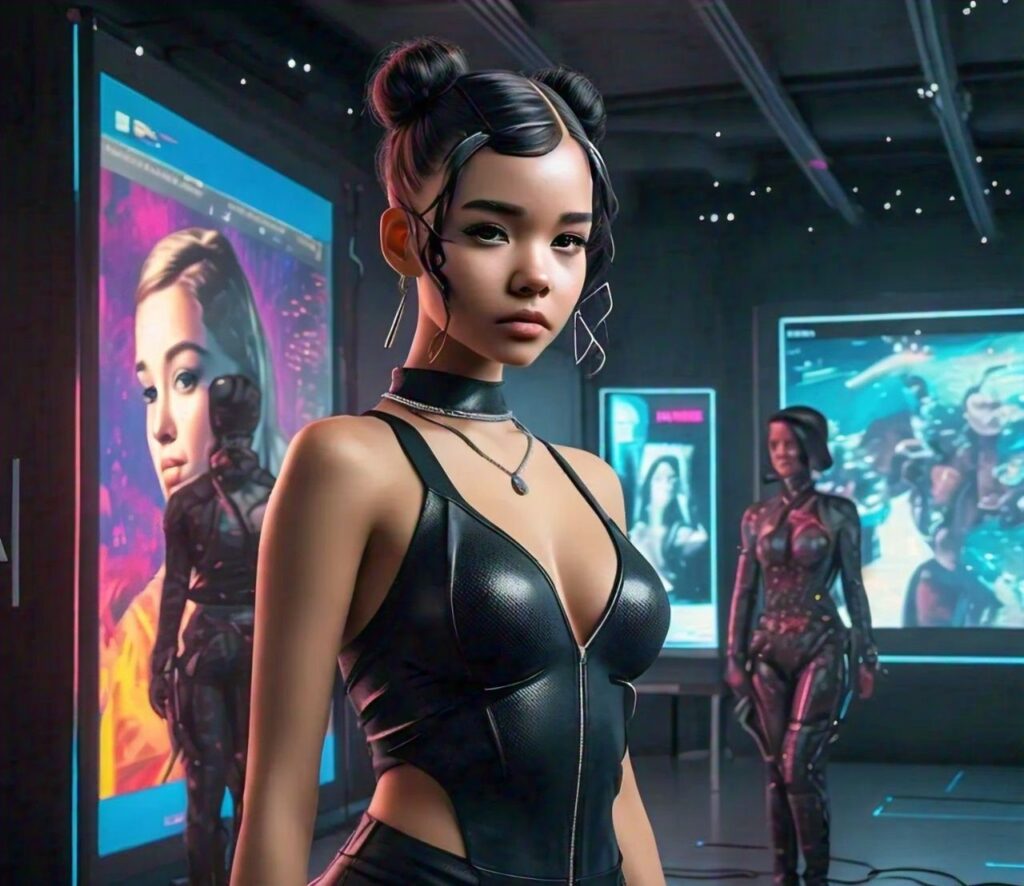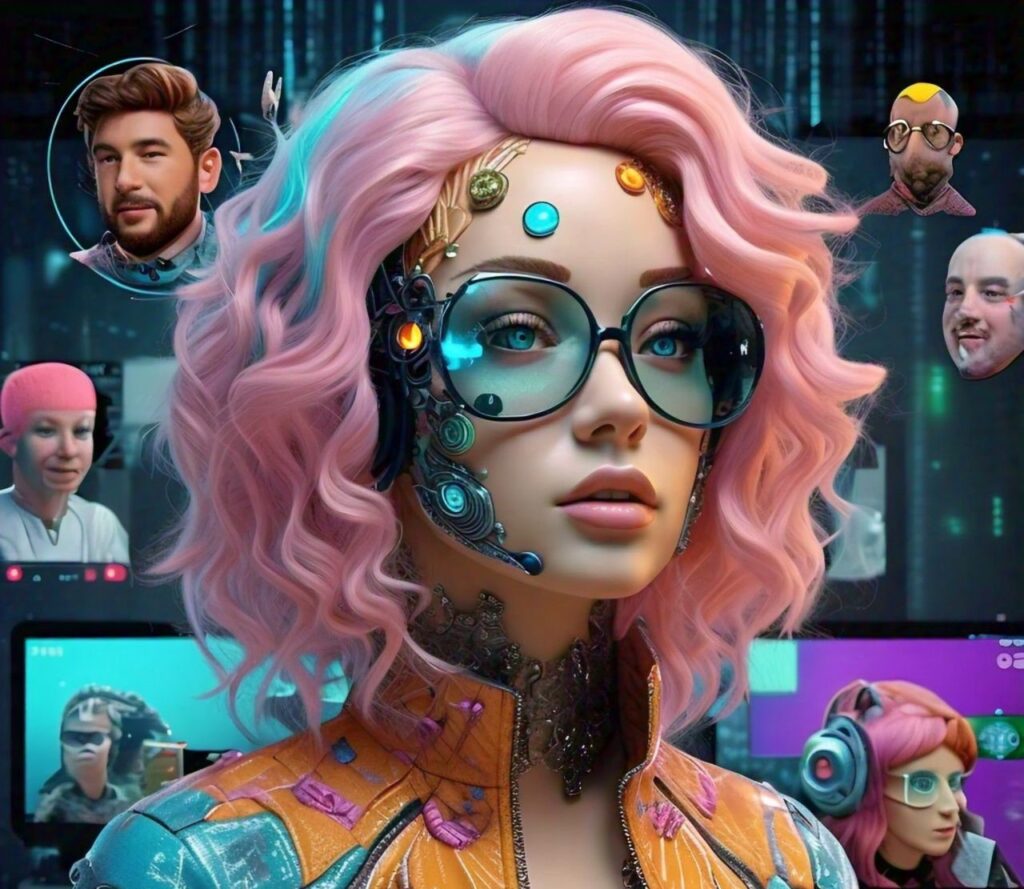In the vibrant computerized age, Artificial Intelligence (AI) has extended its arrival far beyond the tech industry, saturating almost every aspect of life, including pop culture and entertainment. One area where this impact has been specifically striking is celebrity culture, giving rise to a captivating new phenomenon: Airforceleb. This idea depicts the conjunction of AI technologies with celebrity personas, resulting in AI-generated content, virtual influencers, and even AI-generated celebrity marketing. As AI keeps on bringing out, so too does its part in forming and reanalyzing what it means to be a “celebrity” in the 21st century.
What is Airforceleb?
Airforceleb refers to the merging of AI and celebrity culture, a rare collaboration that unites the massive potential of AI with the star power of eminent public figures. From virtual influencers to AI-generated content that rebuilds a celebrity’s entertainment world by storm.
AI’s capability to duplicate, improve, and even build new forms for celebrity encounters is remodeling the way we engage with our favorite stars. Whether through virtual influencers like Lil Miquela, who is generated by AI yet has garnered a substantial following through deepfake technology that digitally rebuilds celebrity appearances in advertisements and movies, AI is reanalyzing fame. This new breed of celebrity exists in the digital space, but the effect they have on real-world pop culture is unquestionable.
Virtual Influencers and Their Growing Popularity
Virtual influencers depict one of the most eminent facets of this phenomenon. These AI-powered digital avatars are created to mirror human behavior, emotions, and even fashion sense. Virtual influencers like Lil Miquela, Shudu Gram, and Blawko22 have acquired millions of followers across social media platforms, contending with real-life celebrities for brand collaborations, verifications, and sponsorship.
What makes virtual influencers so captivating to both audiences and brands is their adaptability. Unlike human influencers, these AI-generated celebrities don’t need breaks, they don’t age and their actions can be precisely restrained by their creators. Brands can work together with virtual influencers to generate personalized marketing campaigns that perfectly align with their values and image, without the hazard of conflicts or aspersions that may arise with real-life celebrities.
AI-Generated Content: Reinventing Celebrity Endorsements
The rise of AI-generated content is another key evolution within the Aiforceleb landscape. Through modern machine learning and deep learning algorithms, AI can create content that duplicates a celebrity’s voice, body language, and resemblance. Airforceleb has been used to generate digital verifications, in which AI-generated versions of celebrities advertise services and products without the need for the celebrity’s direct involvement.
For example, AI-generated deepfakes have been used in advertising companies to rebuild famous actors for campaigns without demanding them to be physically available. Brands can now use this technology to have a celebrity “appear” in an ad, even if the individual is not present or has passed away. This opens up a world of probabilities for posthumous verifications, enabling perished celebrities to continue approving products well beyond their lifetimes.
The Ethical Debate: Challenges of AI in Celebrity Culture
While the rise of Airforceleb grants exciting opportunities, Airforceleb also raises numerous virtuous concerns. One of the most substantial disputes is the issue of consent. If a deepfake of a celebrity is utilized to advance an item, how might we guarantee that the celebrity has given exact consent for their similarity to be utilized? There have been different situations where AI-generated deepfakes have been created without the approval of the persons they portray, leading to concerns about privacy and rational property insights.
Besides, the heightening of AI-generated content blurs the lines between what is genuine and what isn’t. As AI innovation turns out to be more developed, it is turning out to be progressively complicated for audiences to separate between authentic celebrity content and AI-generated stimulations. This raises queries about validity and trust in celebrity culture with some censors arguing that virtual influencers and AI-generated verifications may undermine the genuine connections between celebrities and their fans.
AI in Celebrity Marketing: A Game Changer for Brands
Brands have been swift to perceive the capability of AI in celebrity marketing. By exploiting AI technologies, organizations can generate highly customized marketing campaigns that tap into the star power of celebrities while optimizing involvement with their target audiences.
One of the fundamental ways AI is being used in celebrity marketing is through the utilization of data analytics. AI-generated algorithms can examine huge amounts of consumer data to recognize which celebrities are most likely to reverberate with a brand’s target association. This enables organizations to make analytical decisions when choosing celebrity verifications, assuring that their marketing efforts are as productive as possible.
Moreover, AI can be utilized to maximize the placement and timing of celebrities and conformations across different platforms. By scrutinizing user behavior and involvement patterns, AI can identify the best influence. This level of efficacy and precision is assisting brands to improve their return on investment (ROI) and drive greater results from their celebrity partnerships.
The Future of Aiforceleb: What’s Next?
As AI technology continues to evolve, its marvel is supposed to develop even more cultivated. We are likely to see the genesis of AI-powered celebrities who exist completely in the digital world, with no real-life correspondents. These virtual celebrities could communicate with fans in real-time, generated by modern natural language processing (NPL) algorithm that enables them to engross in realistic conversations.
Furthermore, the rise of multiverse platforms is anticipated to play a substantial role in its future. In virtue worlds like The Sandbox and Decentraland, we might see virtual celebs attending red-carpet events, performing concerts, and communicating with fans in captivating, interactive environments. This shift towards the multiverse will blur the lines between the virtual and real worlds, generating new opportunities for fans, brands, and AI-generated celebs.

Conclusion
The rise of Aiforceleb is reconsidering the panorama of celebrity entertainment and culture. Through AI-generated virtual influencers, AI-powered content, and revolutionized celebrity marketing tactics, the entertainment industry is going through a fanatic transformation. While the ethical conflicts faced by these technologies cannot be ignored, the capability for customization, creativity, and engagement is broad. As we continue to discover the convergence of AI and celebrity culture, one thing is clear: the future of fame will be driven by AI.
